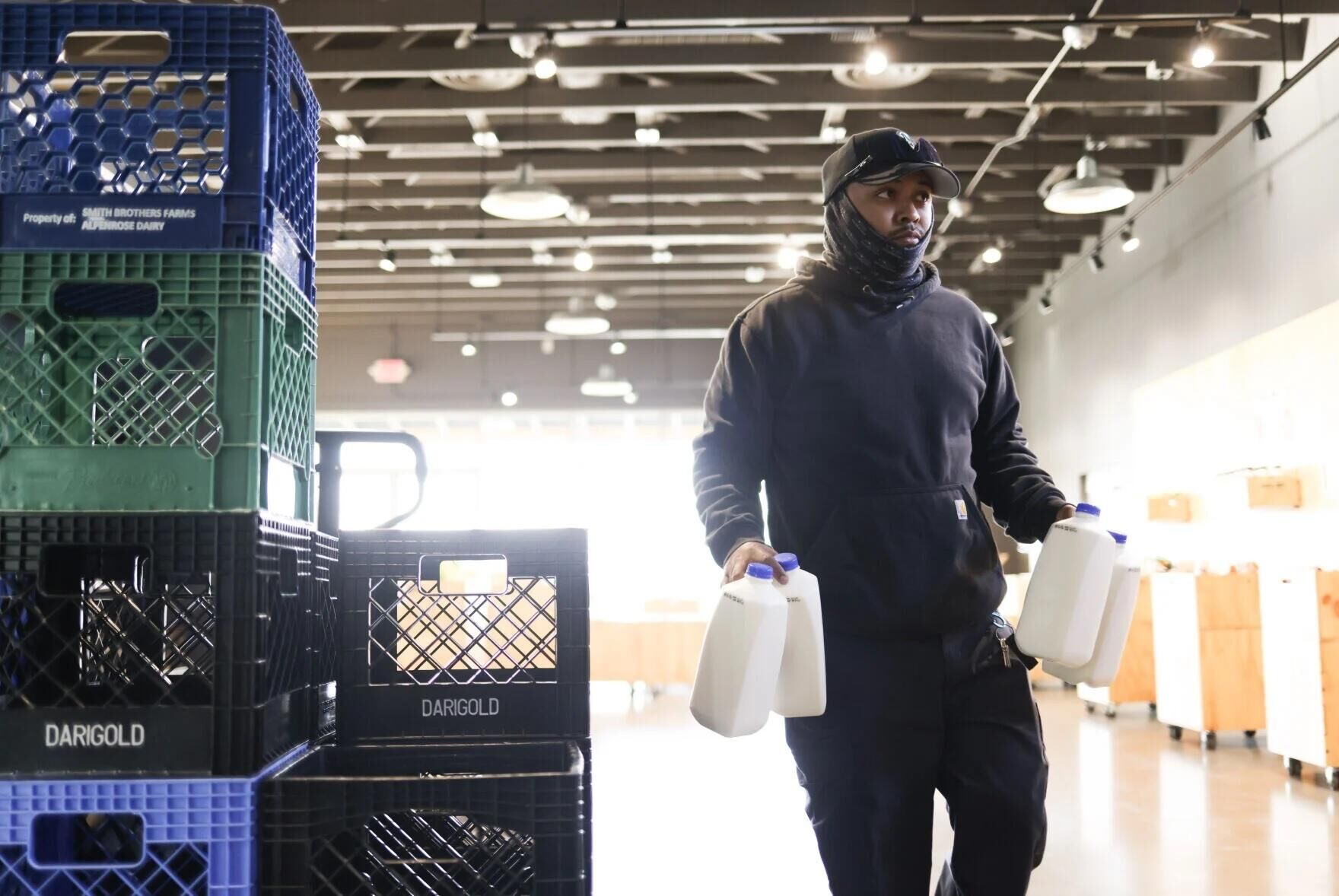Tariqa Waters’ nostalgia-fueled, brightly hued art is unmistakable. Often large in scale, Waters creates sculptures and immersive installations that take us back to the consumerist pop culture of the 1950s through ’80s. Now, for the first time, Waters has created a body of work with sci-fi elements, taking us back to the future.
The solo exhibition “Venus is Missing” — on view at the Seattle Art Museum from May 7 through Jan. 5, 2026 — features a retro-futuristic pink rocket ship that “traverses the realms of what once existed and what will forever remain out of reach,” according to the “mission brief” written by Waters.
In a recent conversation with the Seattle-based artist, the exhibition was still being put together and Waters insisted on keeping certain elements a mystery.
But she also laughingly gave details about the meticulous crafting — out of glass — of dozens of what she calls “ball barrettes,” those elastic hair ties with the colorful baubles on the ends that were ubiquitous in the 1970s and ’80s. These larger-than-life accessories will form constellations overhead in the gallery and will be plugged into the rocket ship, as if nostalgia for another time were powerful enough to jet us into outer space.
The exhibition is connected to the Betty Bowen Award, which Waters won in 2023, in recognition of a Northwest artist’s “original, exceptional, and compelling work.” Knowing that Waters is ambitious with the scale and manufacture of her work, SAM curators gave her more time than usual, offering a postelection slot in 2025, which made Waters a little anxious.
“I was thinking that, no matter what happens in 2025, we might want the possibility to leave, to move to Mars, to leave this planet,” Waters said. “We’ll want options, like the Jetsons, essentially. So, I was like, ‘I need a rocket ship.’ ”
With the idea of a pink rocket ship anchoring the exhibition, Waters crafted an open-ended narrative about sending viewers through a portal, on a mission to explore “the uncharted territories of vulnerability” and to connect “the echoes of the past to the possibilities of the future.”
Waters often thinks about the past, and her own relationship to it. In fact, many of her references come from growing up in the consumerist 1980s in a working-class neighborhood in Richmond, Va. In a single-parent household, her mom struggled but made ends meet, and a young Tariqa thought a lot about “the things they did and didn’t have during this era of ‘Dynasty’ and opulence.”
The ball barrettes, which her mother used once a week to style her and her sister’s hair, have become a symbol of care, toughness and vulnerability. “They're a fun accessory and adorable, but not for me when I was growing up. Once our mom styled our hair with those things, she didn't have to worry about us for the rest of the week. And I didn't have a voice. I didn't really have a say in the matter.”
Enlarging their scale, and transforming them into glass, with the assistance of a residency at the Museum of Glass in Tacoma, the ball barrettes become part of “a broader conversation about transparency, fragility and generational stories.”
The title of the exhibition, “Venus is Missing,” also derives from that time, when her childhood home was protected by three Doberman pinschers installed by their father when he left the family. Looking back, Waters contemplates what might have happened if Venus, the most ferocious dog, had gone missing.
Still, Waters insists there was light alongside the darkness. She recalls “living in a state of play. It was ‘Mister Rogers.’ It was ‘Sesame Street.’ There was always this space of imagination that was there, too, at the same time.”
Some of these narratives are expounded in Waters’ first book, titled “WHO RAISED YOU? A Martyr Sauce Guide To Etiquette,” to be released this summer by Minor Matters Books.
Riffing off the form of a 1950s etiquette book, it contains vivid imagery of Waters’ art, alongside stories of her upbringing, moving to Seattle with her husband (acclaimed musician Ryan Waters), and setting up Martyr Sauce (a term based on one of her kids’ mispronunciation of tartar sauce) as a cultural entity, which includes ongoing curatorial collaborations and her now-closed Pioneer Square gallery.
The book also touches on the way Waters has encountered the art world, with all of its racism and misogyny.
There have been many times, Waters recounted, “when I’m the only Black person in the room and I feel winded, you know, my hands on my knees. There's a lot of giving, but not a lot of getting. That negotiation has always been very interesting to me.”
Seen in that light, the book’s instructions on manners take on deeper import. We should pay attention when Waters enjoins us to “learn how to be the kind of guest people like to entertain and the kind of host people like to visit.”














(0) comments
Comments are now closed on this article.
Comments can only be made on article within the first 3 days of publication.